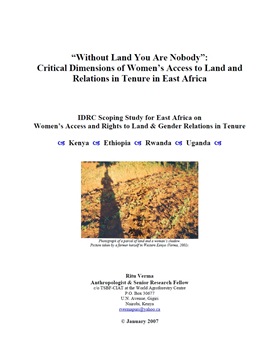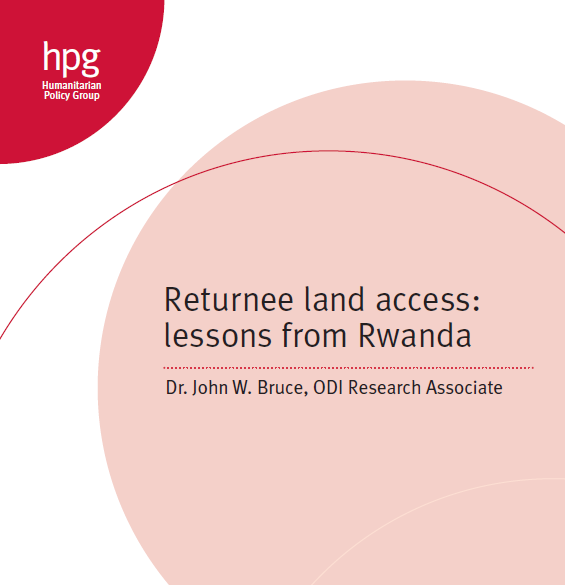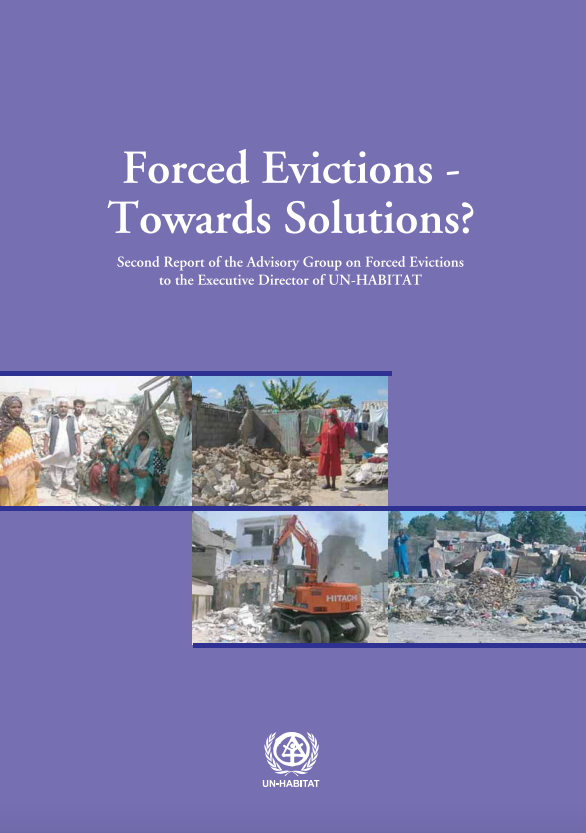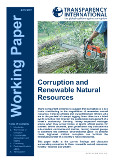“Without Land You Are Nobody”
This scoping study on women's access to land in East Africa sets up a conceptual framework in which to consider issues of women's land tenure and identifies key aras for future research as well as key actiors toward increased jender equity in land rights.








